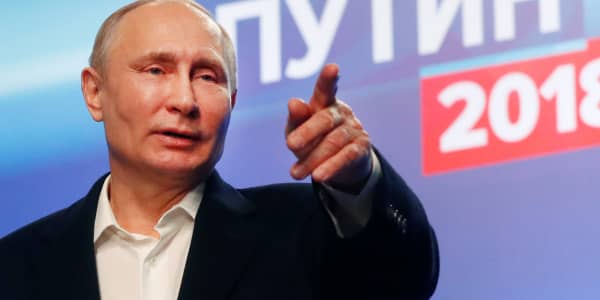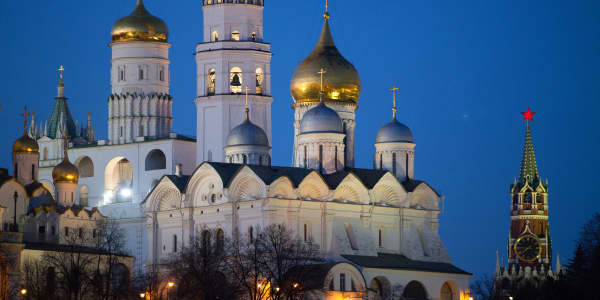


Foreign investors' perception of the Russian economy has improved, the Bank of Russia's governor told CNBC on Wednesday, adding that the central bank might make further cuts to its key interest rate.
"We are seeing that gradually foreign investors' perceptions are changing for the better with regards the Russian economy and future opportunities for investing into Russian stocks and securities," Elvira Nabiullina said in an interview in Moscow ahead of the St. Petersburg International Economic Forum.
The Russian economy is set to shrink this year, but by less than in 2015 — the International Monetary Fund forecasts a contraction of 1.8 percent in 2016, versus 3.7 percent last year.
Currency wars?
Russia's central bank cut its key interest rate by 0.5 percentage points to 10.5 percent on Friday, citing a steadying rate of inflation for the move. Inflation came in at 7.3 percent for a third consecutive month in May, according to the bank.
"The potential for a further reduction of interest rates is there, because if you take a look at our nominal and real rates, they are fairly high right now," Nabiullina told CNBC.
She added that she was not worried by the possibility of an international "currency war," despite concerns raised by economists and politicians over the last few years that countries were competing to debase their currencies, partly in a bid to make exports more competitive.
"I see very little risk of any serious currency wars breaking out. I think that many central banks and financial authorities understand that any long-term attempt to compete through an artificial depreciation of their currency (would not) be very effective in the long term," she said.
Aftermath of Brexit
Nabiullina also said the possibility of the U.K. exiting the European Union after its referendum on membership on June 23 did not pose a risk to the Russian economy.
"We have had discussions to try to analyze the possible aftermath of Brexit and the consequences for the Russian economy. There is no direct consequence for the Russian economy because we have a fairly low level of mutual trade with the U.K. and not very significant high-level cooperation in the financial sphere," she said.
Follow CNBC International on Twitter and Facebook.





